#Michael Bulgakov
Text







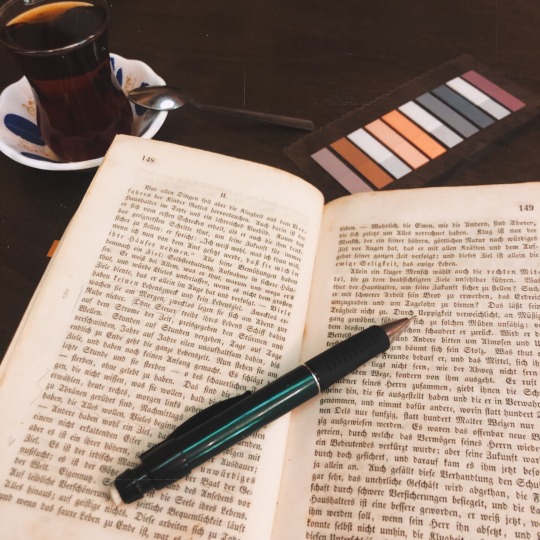


Impressions of the last weeks 📚✨
#books#literature#book cover#bookworm#world literature#antiquarian book#bücherwurm#classic literature#philosophy#antiquarian#19th century literature#19th century#Hamlet#Novalis#Michael Bulgakov#Xenophon#Platon#Gustav Freytag#mood board#sea side#walking and reading#therapy by reading
2 notes
·
View notes
Text
Master and Margarita (2024) review
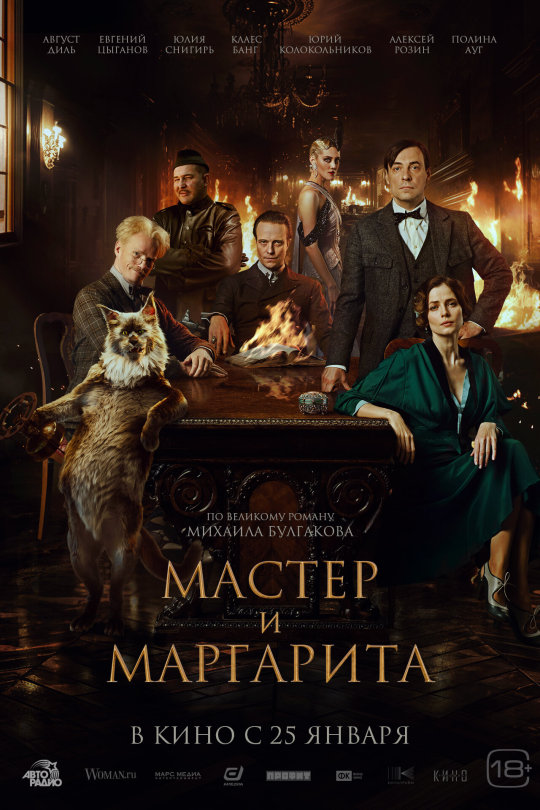
Oh when in Soviet Russia…
Plot: Based on Mikhail Bulgakov's novel "Master and Margarita". 1930's, Moscow. A famous writer is censored by the Soviet state: his novel is banned, and the theatrical premier of his new play about Pontius Pilate - canceled. In just a few days he becomes an outcast. Inspired by these misfortunes the writer conceives a new novel in which the devil, named Woland, satirically revenges all those responsible for the writer's downfall. He knows this novel can never be published in the USSR, but Margarita - his muse pushes him to write it no matter what.
I truly believe Master and Margarita is one of the most powerful pieces of literature to come out from Russia. Yes I am aware War & Peace is more talked about, but look, I read all of its 1000+ pages and though it is an epic in every sense of the word, it does drag quite about. As for Master and Margarita, Soviet writer Mikhail Bulgakov created a satirical, quasi-biblical allegory that represents themes that are crucial to the human experience, such as struggle between good and evil, corruption in government and high society, human fragility, religion and prophecy, and the endurance of love over all. It’s a masterfully written piece of work, and one that is truly hard to adapt to screen, due to how much happens through its pages. However I’m all for directors giving it a go, with Michael Lockshin taking the challenge with a motion picture that was originally a co-production between Russian studios and Universal Pictures, though the latter pulled out following the Russo-Ukrainian War, even though most of the filming was already complete. Nevertheless after multiple delays the final product is here, so let’s digest.
Let’s talk through the positives first. It’s nice to see a Russian production of such grand scale, that even gives Hollywood a run for its money. There are some truly spectacular set pieces, and also interesting visuals, especially of a futuristic post-modern take of the Soviet Union, that reminded me a little of the recent Atomic Heart video game. Also the inclusion of August Diehl who plays the central Satanic figure Voland. This casting choice was a truly inspired one, as Diehl both looks and feels as if he came out straight from the pages of Bulgakov’s novel. There’s just this presence to him, as you can tell the power behind his eyes, yet he can also be really charming and witty. Whenever he was on-screen, the movie fully came to life, as he managed to perfectly balance the damning mocking tone with a deep inner understanding of things beyond the human mind. Look, there’s a great reason why they casted an actor outside of Russia for this part, as Diehl honestly was incredible. Funny how this is the same guy who got his testicles shot off in that WW2 Tarantino flick. Evgeniy Tsyganov as the titular Master too felt perfectly apt for the role, in some ways personifying Mikhail Bulgakov himself. The Master is a character that can so easily come off as dull, as he’s generally very stoic and constantly deep in his own thoughts, so it was a nice interpretation with Tsyganov breathing more life into him.
Unfortunately this is where the positives end. Look, I think it is truly impressive for the entire novel to be transferred into a 2hr 30min film, and of course I expected certain parts to be rushed. However the movie shoots itself in the foot by trying to approach the source material in a different way. Messing with various realities and reorganising the events of the novel in a completely different order, the result is messy and all over the place. I can say with full certainty that if I haven’t read the book before that I’d be so confused as to what the hell was going on in this movie. From the way it jumps from one place to the other in non linear fashion made it so difficult to be engaged and feel connected with the characters. There was a lot of extra narrative elements added to an already overstuffed plot (with a lot of creative choices being outright baffling) as such causing the movie to need to rush even more certain other key plot points that again, it was really disorganised and jarring.
Also, I know that ever since Batman it’s now cool to go dark with everything, but The Master and Margarita is a novel that doesn’t shy away from raising a few eyebrows. In fact it goes out of its way to be as weird and ridiculous as possible, with the inherent horror and tragedy that befalls each of its characters being felt only later, after the laughs have died down. The humour in the book, especially the dark stuff - that’s sort of famously the Russian novelists’ coping mechanism against, uh, being a Russian novelist. Yet this new 2024 film hardly allows a single joke, and instead tries to cover everything with a dark dramatic tone, and I feel that really takes away from the charm of Master and Margarita. Heck there are even sequences in the film that are supposed to be played for laughs, like the Behemoth cat’s shootout with the KGB cops that screams for physical comedy potential, yet the movie kind of glosses over it in a very monotonous way.
Aside from August Diehl and Evgeniy Tsyganov, the casting left a lot to be desired. Yulia Snigir made for a really bland Margarita. Voland’s entourage of demons, who in the book are a cause for some truly entertaining if silly shenanigans, here are completely wasted, and in fact are borderline annoying. Yuri Kolokolnikov as Korovev, the main member of his entourage, was actually horrendous. In the source material Korovev is a trickster, yet there was still wiseness within his madness. Here however Kolokolnikov plays him as if he were some kind of deranged clown, screaming every single line and maniacally laughing for absolutely no reason. The talking cat, who is one of the book’s best characters, in here is just a CGI cat who says maybe only two lines of dialogue in the whole film, and even then it’s a lazy mumble courtesy of actor Yura Borisov. Claes Bang as Pontius Pilate looked bored out of his mind. To be fair, the whole biblical side plot of Pilot and Jesus suffers the most here by being downgraded to maybe 5 minutes, which at this rate I feel like they should have cut the whole thing out entirely as the 5 minutes added nothing to the overall film. But yes, Claes Bang was evidently there to collect a pay check, and part of me wishes that instead we just had James McAvoy reprise his comedic take of Pilate from The Book of Clarence that came out earlier in the year.
It was never going to be an easy feat adapting Bulgakov’s epic into a movie. The narrative lends itself so much better to a TV series format, and in fact there is a wonderful 2005 limited series adaptation from Vladimir Bortko, and now that right there is how you make Master and Margarita work! That series featured great music, amazing performances, and plenty of breathing room to give every nook and cranny detail of the book its proper time. 2024’s Master and Margarita doesn’t come anywhere close to it, and though I do admire Lockshin’s ambitions, in the end it all falls flat on its face. August Diehl however is truly phenomenal in this, and honestly I really need to watch more of his acting work. I hear A Hidden Life with him is supposed to be good. Adding that to my watchlist as we speak.
Overall score: 4/10
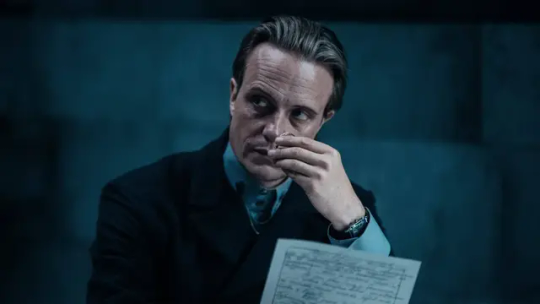
#master and margarita#movie#movie reviews#film#film reviews#cinema#fantasy#drama#master and margarita 2024#august diehl#claes bang#evgeniy tsyganov#yulia snigir#michael lock shin#Russia#mikhail bulgakov#master and margarita review#2024#2024 in film#2024 films#yuri kolokolnikov#voland#woland#romance#soviet union#soviet aesthetic
13 notes
·
View notes
Text

The Master and Margarita (2023)
Director: Michael Lockshin
Writing credits: Mikhail Bulgakov, Roman Kantor, Michael Lockshin
Cinematography: Maxim Zhukov
#movie stills#movies#2023#master i margarita#the master and margarita#mikhail bulgakov#roman kantor#michael lockshin#august diehl#2023 movies#20s movies
5 notes
·
View notes
Text



Desatanizing Satan
#glider#glider168#bobbyelzebub#holy spirit#cubismo gizmo#saint sergius bulgakov#arckangel michael#transfiguration of life#🏴☠️🏴☠️🏴☠️
0 notes
Text
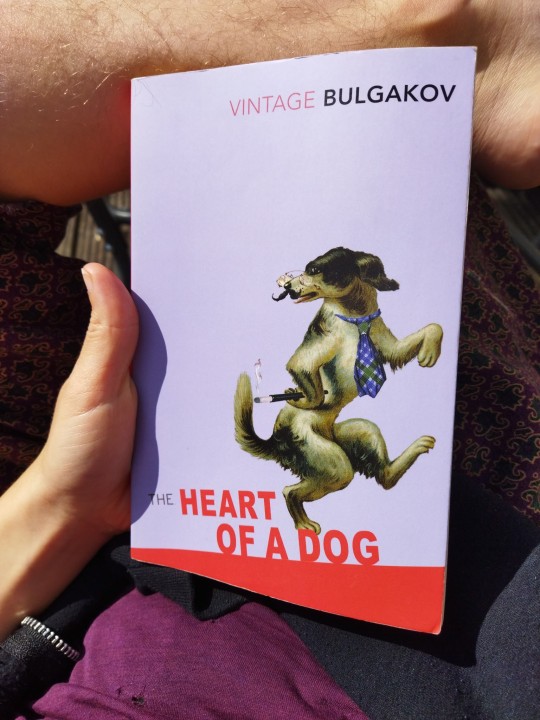

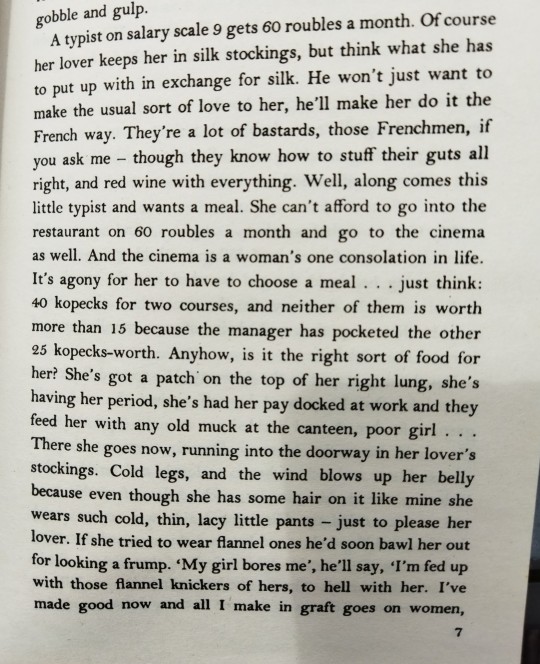

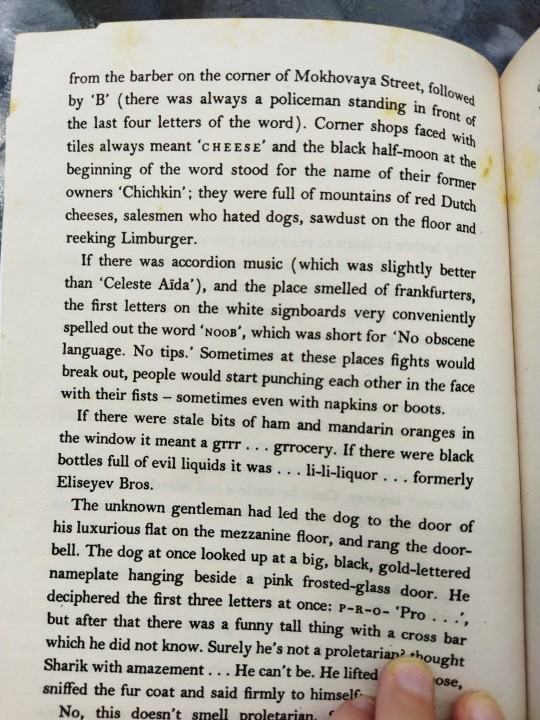

1 note
·
View note
Text
One of Russia’s most famous 20th-century novels has returned to the Silver Screen. Infamously difficult to capture as a motion picture (more mystical observers even speak of a curse), Mikhail Bulgakov’s “The Master and Margarita” is back, reinterpreted by American-Russian filmmaker Michael Lockshin. The new movie stars Evgeny Tsyganov and Yulia Snigir in the titular roles and features German actor August Diehl (Gestapo major Dieter Hellstrom in Quentin Tarantino’s “Inglourious Basterds”) as the story’s demonic character Woland. Meduza reviews the controversy surrounding the film’s director and funding, the book’s cinematic history, and Lockshin’s adaptation.
The political controversy
Michael Lockshin’s “The Master and Margarita” averages an impressive 7.9/10 rating with more than 43,000 reviews at KinoPoisk and leads Russia’s box office in its opening week after earning 57.3 million rubles ($640,000) on its first day in theaters, but the director was making enemies before his film ever sold a single ticket. Self-described patriots denounce Lockshin as a Russophobe, a traitor, and a neoliberal besmircher of the intrepid Soviet secret police. They call him a hypocrite, too, in light of the fact that this new adaptation of Bulgakov’s classic was made (in 2021, before the full-scale invasion of Ukraine) with 800 million rubles ($8.9 million) from Russia’s Cinema Foundation, the state’s key funding agency for the domestic film industry.
Lockshin, who now resides in the United States, declined to answer Meduza’s questions about the backlash in Russia, saying he’s not yet ready to comment on the situation. On Telegram, pro-war channels have circulated screenshots of Facebook posts that are now hidden from non-friends where Lockshin shared independent reporting about the war in Ukraine, wrote that he’s donated to Ukrainian organizations, warned that future generations of Russians will be paying reparations for the “tragedy they brought to Ukraine,” and compared the Putin regime to Nazism in Germany.
State propagandist Tigran Keosayan has advocated criminal charges against Lockshin, while Trofim Tatarenkov, a host on Russia’s state-run Sputnik radio (who admits that he hasn’t even seen Lockshin’s movie), called the filmmaker “scum” and fondly remembered how such “enemies of the people” were shot during the Stalinist era.
Previous adaptations
In May 2016, poet and literary critic Lev Oborin wrote an essay for Meduza answering several “questions you’re too embarrassed to ask” about Bulgakov’s “The Master and Margarita,” including the most shameful of all: Can I just skip the book and watch a movie version instead? The short answer is, yes, you can always skip the book. In fact, unless you’re a student or some other kind of hostage, you can skip the movies, too. But since you asked, there are at least two previous screen adaptations of “The Master and Margarita” worth knowing about.
The better-liked version, at least until now, has been Yuri Kara’s 207-minute film, made in the mid-1990s but not released until August 2011. Meanwhile, in 2005, Vladimir Bortko created a miniseries for Russian television that was criticized for uneven casting and even worse special effects. Unfortunately for Bortko, the 10 episodes drew deeply unfavorable comparisons to his beloved 1988 adaptation of Bulgakov’s “Heart of a Dog.”
It’s also tempting to contrast Bortko’s miniseries with Kara’s adaptation — particularly how the two portrayed one of the novel’s most visually scandalous scenes: Satan’s Grand Ball. Filmed almost a decade later and made for TV, the sequence in Bortko’s series “looks almost puritanical” compared to Kara’s film, noted Lev Oborin. In raw terms of nudity and violence, this assessment is hard to contest:
youtube
So, is Lockshin’s adaptation any good?
Anton Dolin (a prominent Russian film critic who might be best known to casual Internet users as the interviewer who provoked Ridley Scott into saying, “Sir, fuck you. Fuck you. Thank you very much. Fuck you, go fuck yourself.”) liked Lockshin’s adaptation quite a bit. In a review published by Meduza, Dolin writes that the film “manages to retain the sharpness of the original source, which mocks Soviet power, and at the same time offers the viewer an innovative perspective on a classic text.”
Dolin praises Lockshin’s “Hollywood flourishes” and his capacity to juggle the book’s “genre and intonation incompatibility,” which has plagued past interpretations. The new adaptation brings a “circus element” to the story without sacrificing the script’s “rigidity,” says Dolin, while also “condensing the vastness of Bulgakov's novel into a coherent and clear narrative.” (You’ve been warned, formalists.)
Lockshin’s film takes some liberties with Bulgakov’s classic. For example, in the novel, the Master character doesn’t emerge until the middle of the book, leaving the reader to wonder about the title. In the new film, however, the main plotline belongs to the love story between Margarita Nikolaevna (the unhappily married wife of a Soviet functionary) and a writer she calls the Master. According to Lockshin’s script (which he co-wrote with Roman Kantor), the secondary narrative involving Pontius Pilate’s trial of Yeshua Ha-Notsri (Jesus of Nazareth) is a play within the story written by the Master and pulled from production by Soviet censors after its opening performance. (In a feat of authenticity unprecedented in modern Russian cinema, the Jerusalem scenes, which comprise roughly 10 minutes of the film, are performed in Aramaic and Latin.) Meanwhile, all the adventures across Moscow involving Woland and his entourage are presented as figments of the Master’s imagination as he slowly loses his mind under state persecution.
As Lockshin has argued in comments promoting the movie, Dolin says Bulgakov’s novel enjoys heightened relevance in contemporary Russia, and the new film makes menacing villains of NKVD executioners while presenting even more revolting characters in the Soviet elites whose conformity and hypocrisy enabled the Stalinist regime.
Dolin praises the decision to cast August Diehl as Woland, the mysterious foreigner whose visit to Moscow sets the plot rolling in the novel. Diehl’s Woland “is a real find,” Dolin writes. The German actor plays the character as “an infernally sarcastic gentleman in black” who resembles Satan “more than the thoughtful, sad wisemen from various Russian interpretations of the same character.”
A cartoonishly scary foreigner, complete with a spooky German accent, Woland turns out to be the creation of the writer’s wounded mind, his alter ego, writes Dolin. The censorship and persecution the character faces in the film are a “chilling reproduction” of mechanisms that resonate more in Putinist than Stalinist Russia, Dolin argues, highlighting some lines that wink boldly at modern-day realities, including nods to Crimea, oil production, and military parades.
Lockshin’s adaptation also features a fantastical version of Moscow that recalls the visionary designs of artists in the Higher Art and Technical Studios, which flourished in the 1920s before crumbling under Stalinism. In this universe, Moscow completed the Palace of the Soviets, altering the skyline in a delirious finale that depicts the city ablaze. This scene, in particular, has upset several state propagandists.
Dolin notes that Margarita is absent from the story for much of the film, but she reappears in the final act as a heroine on her own narrative arc. In the character’s scenes as a witch and then a queen, Lockshin’s intentions and the meaning of the novel’s title finally become clear, says Dolin:
It’s not the imagination of the writer that transforms the grim reality but exclusively the emotion that is capable of elevating you to the heavens, of burning cities, and punishing or pardoning with the mere force of thought. In the end, Lockshin’s film is not about Satan, not about Moscow, not about Pilate, and not about totalitarianism, censorship, or creativity, but about love. It alone makes a person invisible and free.
22 notes
·
View notes
Text
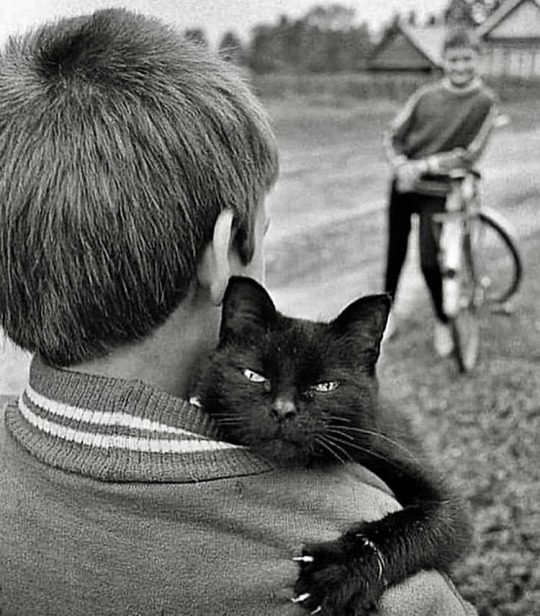
Photograph by Alexander Yanenko (Russian)
Untitled, 1985
•
•
Related YouTube video regarding photographer Alexander Yanenko, the provenance of this photograph (above) and associated references:
YouTube video >> Zach Dobson Photography - Mystery Solved: The Truth behind the Viral Photo "Black Cat and His Kid" [Released 11 November 2023 / 3mins.+38secs.]:
youtube

In Mikhail Bulgakov’s novel The Master and Margarita, the black cat Behemoth character has a penchant for chess, vodka, pistols and obnoxious sarcasm.
Illustration by Christopher Conn Askew

The Master and Margarita by Mikhail Bulgakov. New York. 1967. Harper & Row. Translated from the Russian by Michael Glenny. 394 pages. Hardcover. Jacket art by Mercer Mayer.
•
#Photography#B&W photography#Photography by Alexander Yanenko#TikTok#Zach Dobson#Literature#Writers#Mikhail Bulgakov#‘The Master And Margarita’ - Novel by Mikhail Bulgakov#Jacket art by Mercer Mayer#Cats#Black cats#Black cat called ‘Behemoth’#Illustration by Christopher Conn Askew#Youtube
3 notes
·
View notes
Text
thank you @macbethwitches for tagging me! 💕💕
last song i listened to: (currently listening to) accelerate by susanne sundfør
currently reading: hamnet by maggie o’farrell (it’s excellent but I had to stop myself reading it all weeks before the book club I’m meant to be holding a discussion about it), the master and margarita by mikhail bulgakov (girlies I’m struggling I’m not gonna lie), paul takes the form of a mortal girl by andrea lawlor (it’s. fine? but I’m also not too far in so I’m reserving judgment for now), and erebus by michael palin (excellent stuff but non fiction usually takes me a little while to get through)
last watched: tv wise: taskmaster nz! film wise: perdrix (2019) ((swann arlaud pretty little elfin face supremacy))
currently obsessed with: pistachio. aside from that I don’t really have a current Thing? i’m between obsessions right now!
tagging @ickyhands @truthhux @betanoiz @femmefantome @flashbastard and anyone else who would like it 💖💖💖
4 notes
·
View notes
Note
top five books? and feel free to rant as much as you like about why they're awesome :)
oooh ok! I suck at explaining why I like things though hah in no particular order:
Master and Margarita by Michael Bulgakov. Really interesting satire and social commentary on early Soviet Union things. It’s really well written and intriguing, there’s a lot of examination of Christianity (as something that was looked down upon during the era) and Pontius Poliatus as a POV character. It’s just very good and I have read it in different languages
Monstrous Regiment by Terry Pratchett: so good? So funny and biting once you get into it. Come for the crossdressing shenanigans, stay for the horrors of war and the military leaders destroying their own country by warfare and the strain it puts on a country. Also amazing characters. I keep listening to the audiobook version a lot. Has a character I wanna be when I grow up
Spinning Silver by Naomi Novik: very well written. A completely original fantasy story set in what’s more or less fantasy Russia with one of the main characters being a Jewish girl who’s painfully aware of how much others hate her. Has ice fae. Reads like a fairy tale. It was the first time I read a book with a main character of my ethnic background lol. But it also has a LOT of emphasis on love and family (of choice) and how things like cleansing and needlework is its own kind of magic. It doesn’t look down on the women in it doing traditionally feminine things
The Wizard of Earthsea by Urusla LeGuin: I love the world building. How the most powerful magic is just. Sitting down and watching the world and not speaking. Grappling with mistakes and powers and different cultures and I love that universe
Night Watch by Terry Pratchett: my favourite Vimes novel, it’s so. Well the urgency and sadness and grief and again, social commentary… works best if you’ve read the previous Vimes books I think. For the character development
22 notes
·
View notes
Text
tagged by my dears @sofhtie and @silkchiffon for my top 9 books of 2023 or 9 books to be read in 2024! will be doing the latter:
- the private life of sherlock holmes by vincent starrett (currently reading this one!)
- clothing the colony: nineteenth-century philippine sartorial culture, 1820-1896 by stephanie marie r coo
- secrets of automata by michael start
- the master and margarita by mikhail bulgakov
- the adventures of sherlock holmes: detecting social order by rosemary jann
- the horse and his boy by cs lewis
- british detective fiction 1891-1901: the successors to sherlock holmes by clare clarke
- observations by gaslight by lyndsay faye
- taste of control: food and the filipino colonial mentality under american rule by r alexander d orquiza jr
tagging @saccharinarocks @solarotters @gluegunshots @lambentplume ! no pressure though
#this is all very predictable of me i think#text#also my top 3 books of 2023 were bending the willow; hound of the baskervilles; automata the golden age#i read mostly holmes short stories last year rather than full Books. also read a decent amount of comics
3 notes
·
View notes
Text
Favorite Books/Series Read This Year: 2022
1. Midnight in the Garden of Good and Evil by John Berendt
2. Dracula by Bram Stoker
3. A Little Devil in America by Hanif Abdurraqib
4. Valerian & Laureline by Pierre Christin
5. Norse Mythology by Neil Gaiman
6. This is How You Lose the Time War by Max Amal El-Mohtar
7. The Secret to Superhuman Strength by Alison Bechdel
8. Gideon the Ninth by Tamsyn Muir
9. The Lunar Chronicles by Marissa Meyer
10. Iron Widow by Xiran Jay Zhao
11. The Memory Librarian by Janelle Monae
12. Supergirl: Woman of Tomorrow by Tom King
13. The Warrior Within: The Philosophies of Bruce Lee by John R. Little
14. I, Robot by Isaac Asimov
15. Foundation by Isaac Asimov
16. The Long Way to a Small Angry Planet by Becky Chambers
17. Neverwhere by Neil Gaiman
18. The Power of Habit by Charles Duhigg
19. Dragon Teeth by Michael Crichton
20. Upright Women Wanted by Sarah Gailey
21. The Master and Margarita by Mikhail Bulgakov
22. Fire and Blood by George R. R. Martin
23. Red Rocket 7 by Mike Allred
24. Gender Queer by Maia Kobabe
25. Stress Less, Accomplish More by Emily Fletcher
18 notes
·
View notes
Text

The Master and Margarita by Mikhail (Michalis Afanasievich) Bulgakov
Translated by Michael Glenny
What a weird, weird, weird and wonderful book!
I knew nothing about this book other than it was a Russian author and on my long, long list of unread classics.
Written in the 1930s but not published in full until 1973, I find the content hard to equate to a Russian classic being more like Lewis Carroll’s Alice in Wonderland crossed with Paulo Coelho’s Alchemist crossed with Laura Esquivel’s Like Water for Chocolate.
For me the journey of discovery of this book is everything and I even felt that the eight line blurb gave too much away so I’m not going to do that here just to say, give it a chance, it is a long ride, and don’t worry if you can’t keep track of all the Russian names.
Highly recommend.
#books#reviews#russian#mikhail bulgakov#moscow#jerusalem#pontius pilate#devil#satan#the master and margarita
2 notes
·
View notes
Text
“When people dis fantasy—mainstream readers and SF readers alike—they are almost always talking about one sub-genre of fantastic literature. They are talking about Tolkien, and Tolkien's innumerable heirs. Call it 'epic', or 'high', or 'genre' fantasy, this is what fantasy has come to mean. Which is misleading as well as unfortunate.
Tolkien is the wen on the arse of fantasy literature. His oeuvre is massive and contagious—you can't ignore it, so don't even try. The best you can do is consciously try to lance the boil. And there's a lot to dislike—his cod-Wagnerian pomposity, his boys-own-adventure glorying in war, his small-minded and reactionary love for hierarchical status-quos, his belief in absolute morality that blurs moral and political complexity. Tolkien's clichés—elves 'n' dwarfs 'n' magic rings—have spread like viruses. He wrote that the function of fantasy was 'consolation', thereby making it an article of policy that a fantasy writer should mollycoddle the reader.
That is a revolting idea, and one, thankfully, that plenty of fantasists have ignored. From the Surrealists through the pulps—via Mervyn Peake and Mikhael Bulgakov and Stefan Grabiński and Bruno Schulz and Michael Moorcock and M. John Harrison and I could go on—the best writers have used the fantastic aesthetic precisely to challenge, to alienate, to subvert and undermine expectations.
Of course I'm not saying that any fan of Tolkien is no friend of mine—that would cut my social circle considerably. Nor would I claim that it's impossible to write a good fantasy book with elves and dwarfs in it—Michael Swanwick's superb Iron Dragon's Daughter gives the lie to that. But given that the pleasure of fantasy is supposed to be in its limitless creativity, why not try to come up with some different themes, as well as unconventional monsters? Why not use fantasy to challenge social and aesthetic lies?
Thankfully, the alternative tradition of fantasy has never died. And it's getting stronger. Chris Wooding, Michael Swanwick, Mary Gentle, Paul di Filippo, Jeff VanderMeer, and many others, are all producing works based on fantasy's radicalism. Where traditional fantasy has been rural and bucolic, this is often urban, and frequently brutal. Characters are more than cardboard cutouts, and they're not defined by race or sex. Things are gritty and tricky, just as in real life. This is fantasy not as comfort-food, but as challenge.
The critic Gabe Chouinard has said that we're entering a new period, a renaissance in the creative radicalism of fantasy that hasn't been seen since the New Wave of the sixties and seventies, and in echo of which he has christened the Next Wave. I don't know if he's right, but I'm excited. This is a radical literature. It's the literature we most deserve.”
― China Miéville
Thoughts?
20 notes
·
View notes
Text
The Pilatus-Question - The ultimative question of our epoch
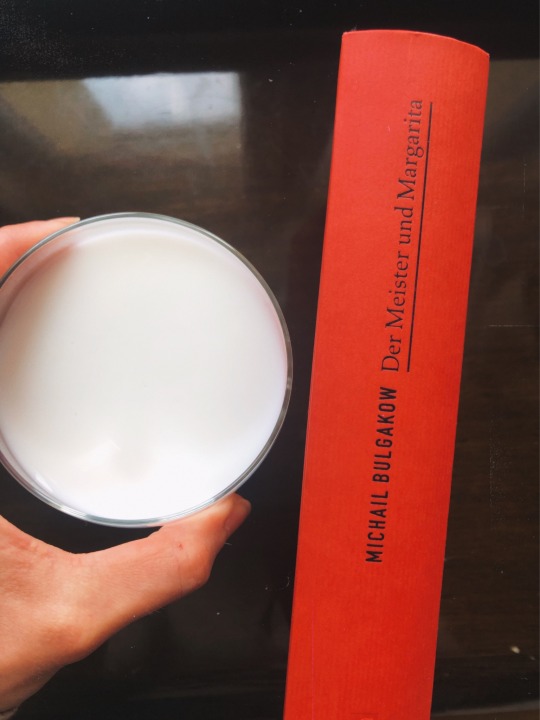
Michael Bulgakov “The Master and Margarita”, originally published (post mortem) in 1967, but written between 1928 and 1940. Bulgakow compared his aim in writing with E. T. A. Hoffmanns literal grotesqueness of a “Gefechtsturm” (~turret), trying to overcome the contemporary reality and pushing the borders with the help of Voland’s transcendental perspective to a timeless and reflective portrayal.
In a dark, but humorous way, Bulgakov disenchants the apparently “New Moscovite” by black magic exposure and presents how archaic structures are still nutritioned and deepened by rational modern society.
Using the dynamic of Yeshua, Matthew the Apostle and Pontius Pilatus, to underdraw that it is not actual important if Jesus has lived or not, the idea of him, presenting a new form of humanism and the epitome of unshakable conscience, is extraordinary.
It is said that Bulgakov’s masterpiece is the Russian version of Goethe’s “Faust” (cf. Dr. Faustus of 1576), he underlines the interaction of the fatal thirst for knowledge by genius and the invocation of Satan, who isn’t characterized as the paladin of evil, but the provocateur of amorality.
Heartwarming and also awe-inspiring how Dostoevky’s conception of the world is adopted by Bugalkov, honoring him with:
You're not Dostoevsky,' said the citizeness, who was getting muddled by Koroviev. Well, who knows, who knows,' he replied.
'Dostoevsky's dead,' said the citizeness, but somehow not very confidently.
'I protest!' Behemoth exclaimed hotly. 'Dostoevsky is immortal!”
#literature#russian literature#book cover#book#bookworm#world literature#the master and margarita#mikhail bulgakov#Bulgakov#Bulgakow#bibliotherapy#bibliophil
19 notes
·
View notes
Text
classics for people getting into reading aka books you can read in one sitting:
things fall apart by chinua achebe
frankenstein by mary shelley
tender is the night by f scott fitzgerald
leaves of grass by walt whitman
lolita by vladimir nabokov
the narrow road to the deep north by basho
we have always lived in the castle by shirley jackson
the english patient by michael ondaatje
therese raquin/the ladies paradise by emile zola
a hero of our time by mikhail lermontov
the heart of a dog by mikhail bulgakov
fathers and sons by ivan turgenev
the posthumous memoirs of bras cubas by machado de assis
the essential rumi, rumi
beloved by toni morrison
4 notes
·
View notes
Text
what I have read in august 2022
• blackwater II: the levee by michael mcdowell
• the year of magical thinking by joan didion
• a certain hunger by chelsea g. summers
• les grandes oubliées : pourquoi l'histoire a effacé les femmes by titiou lecoq - the forgotten ones: why women are erased from history
what I have read in september 2022
• story of the eye by georges bataille
• interview with the vampire by anne rice
• love and freindship by jane austen
• monsieur vénus by rachilde
• paris-briançon by philippe besson
• 1/2 of the master and margarita by mikhail bulgakov
#what I have read in#I thought it'd be a nice idea to share what I have read at the end of the month#so you can come chat about or it can just be inspiration#books#*them
2 notes
·
View notes